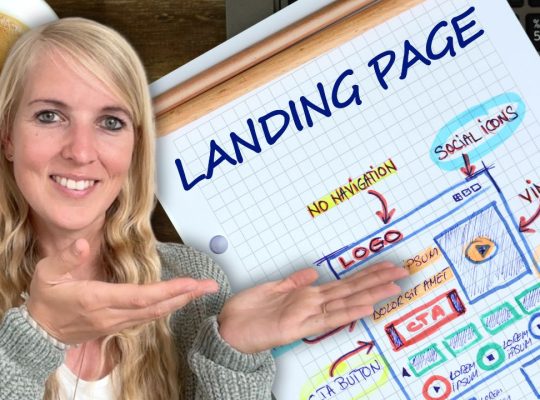Starting a business as a Sleep Consultant can be a challenging but rewarding endeavor. You have the opportunity to help parents improve their lives and achieve better sleep, but there are also common mistakes that can derail your progress. In this blog post, we will explore some of the most common mistakes Sleep Consultants make when starting their business and I provide tips to help you avoid them.
Common Mistake #1: Failing to Identify Your Target Market
One of the biggest mistakes that Sleep Consultants make is trying to market their services to everyone instead of identifying a specific target audience. While it may seem counterintuitive to limit your potential client base, defining your target market can help you tailor your services and marketing efforts to meet their specific needs.
Let’s say you specialize in working with parents who have a child with autism. By understanding the unique sleep challenges faced by these parents and their children, you can develop a customized approach that takes into account their specific needs. You can also create marketing materials that speak directly to these parents and demonstrate your understanding of their situation. This can include blog posts, social media content, and even targeted ads on platforms like Facebook.
Failing to identify your target market can make it harder for potential clients to understand what makes you different from other Sleep Consultants and why they should choose to work with you.
Instead by identifying your target market, you can differentiate yourself from other Sleep Consultants and position yourself as an expert in your niche.
Common Mistake #2: Underpricing Your Services
It’s common for new Sleep Consultants to underprice their services in an effort to attract clients. However, this can lead to undervaluing your expertise and not generating enough income to sustain your business.
Question 1: How much do you want/need to make per month? Let’s say it’s 3000 USD
Question 2: How many clients are you willing to take on per month? Let’s say it’s 4
Divide and now you have the minimum price you need to charge. In this case 750 USD
If stating the full price feels uncomfortable initially, consider offering an introductory discount to your first clients. For instance, you can announce the standard price and then offer a 50% discount to your first five clients. Afterward, you can offer a 40% discount for the next 5 clients, until you reach your target price of $750 per client.
This approach allows you to ease into your pricing strategy while gradually building confidence and establishing the value of your services.
Common Mistake #3: Neglecting Your Online Presence
Having a strong online presence is essential for any business. This includes having a professional website, active social media profiles, and positive online reviews. Neglecting your online presence can lead to missed opportunities and make it difficult for potential clients to find you. Make sure your website is up-to-date and optimized for search engines, and engage with your audience on social media to build relationships and establish yourself as an authority in your field.
To ensure that your online presence is effective, you can also consider hiring a professional to help you with web design, social media management, or search engine optimization. By investing in your online presence, you can increase your visibility, attract more clients, and grow your business.
Common Mistake #4: Failing to Establish Boundaries
As a sleep consultant, it’s important to establish clear boundaries with your clients. This includes setting expectations for communication, scheduling appointments, and follow-up support. Failing to establish boundaries can lead to burnout and frustration for both you and your clients. Consider creating a client contract or agreement that outlines the terms of your services and expectations for both parties.
Here’s an example of how I as a sleep consultant establish boundaries with my clients:
Before working with a family, I always schedule a consultation call to discuss their needs and goals for their child’s sleep. During this call, I set expectations for how we will communicate and work together throughout the process. I let them know that I am available via voice & text messaging during certain hours and that I will respond within 12 hours.
In addition to setting expectations for communication, I also have a policy for follow-up support. I offer a certain amount of follow-up support after the initial consultation, and I make it clear what is included in that support and how to access it. If the parents need additional support beyond what is included in their package, I offer additional sessions for an additional fee.
By establishing clear boundaries and expectations from the beginning, I am able to provide my clients with the support they need while also protecting my own time and energy. It’s important to have a system in place to manage client expectations and ensure that everyone is on the same page.
Common Mistake #5: Not Investing in Professional Development
The sleep consulting industry is constantly evolving, and it’s important to stay up-to-date on the latest research, trends, and best practices. Investing in professional development through continuing education courses, conferences, and mentorship can help you stay competitive and provide the best possible service to your clients. Consider joining professional organizations or networking groups to connect with other Sleep Consultants and stay informed about industry news and updates.
Additionally, seeking mentorship from experienced Sleep Consultants can give you valuable insights and guidance on how to grow your business and provide top-notch services to your clients. By investing in your professional development, you can keep your skills and knowledge up-to-date and ensure that you’re offering the best possible service to your clients.
In Conclusion
Starting a business as a Sleep Consultant requires careful planning, hard work, and a commitment to ongoing learning and growth. By avoiding these common mistakes and focusing on providing high-quality services to your clients, you can set yourself up for success and build a thriving business. Remember to stay positive, persevere through challenges, and stay true to your passion for helping people achieve better sleep.
If you don’t want to make these (and more) common mistakes when starting your business, take a look at the Sleep Consultant Business Starter™ – Your A-to-Z blueprint to start and launch your sleep consulting business (including my 1:1 support & feedback).








